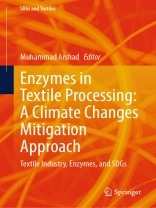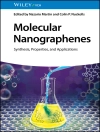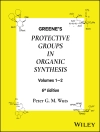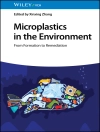The book offers a comprehensive overview of low-capital cost technologies for enzyme manufacture and utilization in the textile industry with sustainable bioenergy from effluent. Enzymes produced from renewable sources to replace potentially harmful chemicals in textile products have been outlined in making the textile industry greener and eco-friendly. The current book also addresses the strategies to achieve sustainable development goals (SDGs) and sustainability education in the textile sector. In particular, the use of green enzymes to convert by-products from textile effluents into bioenergy has been highlighted. This book outfits academic researchers, industrial practitioners, and policymakers for the engagement of green enzymes as a step toward sustainable development goals in the textile industry.
表中的内容
Textile enzymes a green approach.- Catalysis and bioprocessing Applications in the textile industry. Enzyme applications in textile industry A step toward sustainable development goals.- Sustaining amylases applications through digitalization in the textile economy.- Practical aspects of handling the use of cellulases in the textile industry.- Pectinases and economic aspects related.- Biodiesel generation from textile effluents through algae and microalgae.- Role of Laccases to Achieve, net-zero carbon emissions.- The Circular Bioeconomy Concept in the textile industry.- Global Status of enzyme application in the textile industry Challenges and Roadmap.
关于作者
Dr. Muhammad Arshad works as a Tenured Associate Professor at the University of Veterinary and Animal Sciences Lahore (Jhang campus), Pakistan. His research interests include climate change, sustainable biomaterials, environmental pollution, bioethanol production, and bioenergy from animal waste, and published in highly reputed peer-reviewed international journals. Before joining the academia, he worked in the biofuel industry of Pakistan.












